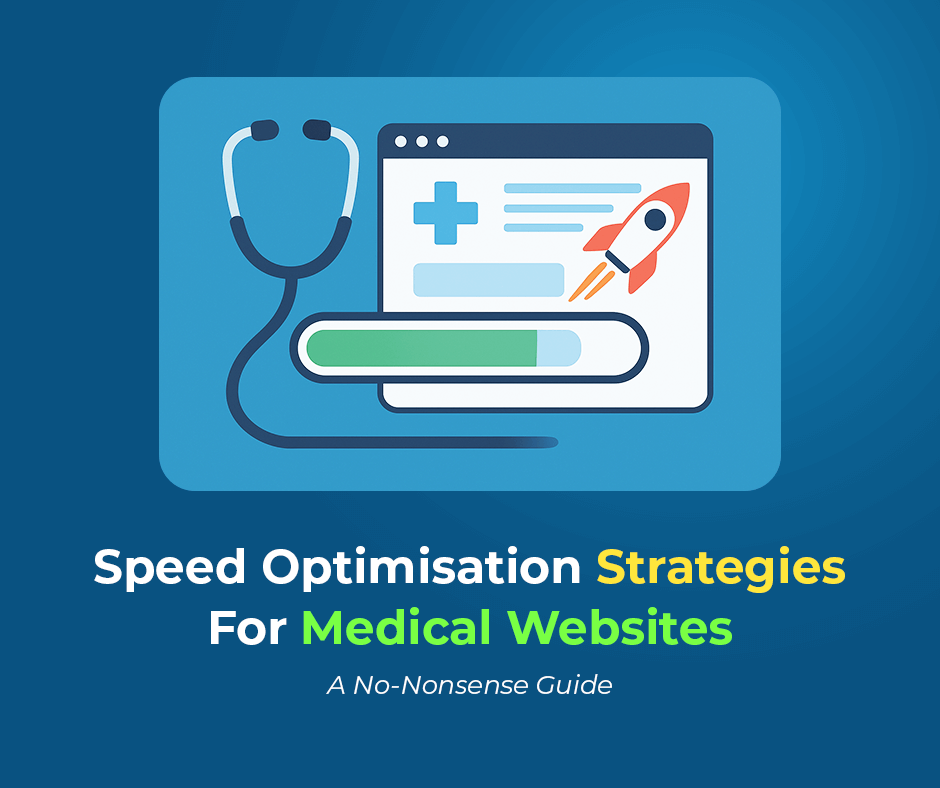HIPAA (Health Insurance Portability and Accountability Act) is a law that mandated the development of national guidelines to prevent the disclosure of private patient health information without the informed consent of the patient. The Privacy Act 1988 is essentially HIPAA’s equivalent in Australia. Since patient health data is among the most sensitive types of personal information available, the Privacy Act was created in part to provide additional security measures to secure it and other types of information.
Jump Ahead to...
ToggleThe way these organisations gather and manage personal data, including health data, is governed by the Privacy Act. It also has clauses that, in general, let someone see the data that is kept about them. Healthcare identifiers and health information stored in an individual’s My Health Record are subject to regulations from the Office of the Australian Information Commissioner (OAIC).
The following details may be included in personal information:
- A person’s name, signature, address, phone number, or birthdate
- Images
- Data from employee records
- Credit data/ Bank Accounts
- The addresses of Internet Protocol (IP)
- Biometrics for voiceprints and facial identification (because they gather traits that distinguish a person’s voice or face from others)
- Location data obtained from a mobile device (because it can disclose trends and habits of user activity)
The Role of Secured Managed Hosting
Website, application, or data storage and hosting services that adhere to the HIPAA Security Rule’s physical safeguard standards are referred to as HIPAA hosting. One of the key prerequisites for application developers to guarantee HIPAA compliance with their solutions is HIPAA hosting.
The process of preventing illegal access to your website server is known as “secure hosting.” There are several strategies to secure your website, including two-factor authentication and the use of strong passwords. With managed hosting, all technical and security elements of running servers are managed by specialised third-party teams. This method guarantees server updates, scalability, hyper-security, lightning-fast speed, and assured website uptime in addition to seamless, stress-free hosting.
Benefits of HIPAA-compliant Hosting
Improved Data Security and Safety
HIPAA compliance companies make significant investments in state-of-the-art cybersecurity capabilities targeted at protecting private medical information, such as test results, billing information, and treatment records. Advanced intrusion prevention, firewalls, SIEM, DLP, UEBA, and other cutting-edge security measures are used in their data centres. They offer host-based controls, DLP agents, encryption, and EDR on the endpoint side.
Cloud infrastructures are constantly being checked for threats or misconfigurations by services like CSPM. Dedicated security operations centres with round-the-clock workers aggressively seek out dangers and address incidents. When these overlapping protections are combined, they provide a “zero trust” security posture, which makes it very difficult for malevolent actors to compromise PHI data using methods like insider threats, malware, hacking efforts, or human mistake.
Economic Advantages
It costs a lot of money to establish an internal HIPAA compliance program. Qualified compliance officers, privacy specialists, IT security personnel, auditors, trainers, and other personnel must be hired and retained. For larger healthcare firms, their annual salary, benefits, training expenses, and compliance technology spending can quickly reach the millions. You can get around those high fixed expenses by outsourcing to a compliance service provider. Rather, you pay a variable monthly or yearly fee that represents a small portion of the total cost of doing business internally. By utilising economies of scale, providers can affordably offer their specific knowledge to a number of consumers.
The Ability to Scale
Healthcare companies undergo a lot of changes on a regular basis. Some of these changes include hiring more staff, building new buildings, and implementing new technologies. To retain HIPAA compliance during each of these transitions, changes must be made to risk management, access controls, and other areas. Reputable suppliers of HIPAA compliance are adaptable enough to quickly scale up or down services in response to changing compliance requirements. They can swiftly deploy compliance resources, modify policies, add monitoring and protection to new systems and locations, and provision or deprovision users. Healthcare companies may closely link their compliance processes with actual business needs and budgets because of this scalability. It keeps you from having to deal with compliance gaps during transformation periods or overpaying for static resources.
Knowledge and Resource Availability
Healthcare businesses are required to adhere to a wide range of administrative, physical, and technical standards that are covered under the extremely complex HIPAA regulations. It is priceless to have full-time specialists who are conversant with all the subtleties of the regulations in order to properly assess risks, design policies, and execute controls.
Attorneys, auditors, former regulators, and other specialists committed to gaining in-depth knowledge of the constantly changing HIPAA regulations are employed by compliance firms. For every client, they design specialised sets of guidelines, protocols, and business associate contracts. Their job aids, videos, and guidelines, among other training materials, effectively teach employees the fundamentals of security and privacy. They carry out risk analyses, plan remediation, and support audits to show compliance with regulators.
Key Features of HIPAA-Compliant Hosting
Data centres that are physically and environmentally secure
Businesses that handle sensitive data must keep it in safe places that are guarded against hazards like natural disasters and unlawful access. This covers items like as security guards, biometrics scanners, backup power sources, and earthquake, flood, and fire safety.
Data storage and Transmission using encryption
It is encrypted using sophisticated mathematical techniques to stop hackers and other bad actors from intercepting and accessing your private information while it moves over the internet or is stored in databases. This jumbles the data, making it appear unintelligible to anyone lacking the decryption key.
Routine backups and Procedures for disaster recovery
Accidents can still occur even with robust security: viruses can attack, equipment can malfunction, and personnel can make mistakes. It is for this reason that regular data backups to separate, secure storage are essential, as are procedures in place to resume operations in the event that the primary systems fail.
Audit traces and Access restrictions
You don’t want any employee of the company to have arbitrary access to client information or other private data. Businesses carefully limit access permissions according to positions and responsibilities. To ensure accountability, they also keep track of all views and modifications to classified information.
Regular evaluations of risks and Security upgrades
Rapid technological change is accompanied by a steady emergence of new hazards. Reevaluating procedures and policies on a regular basis, patching vulnerabilities that are found, and implementing updated security measures as soon as feasible are all necessary for effective security.
Comprehensive Security Measures’ Significance
Data is a valuable resource in today’s digital age that helps businesses run efficiently and provide excellent customer service. However, thieves find that data to be a tempting target as well. In order to gain the trust of the public and prevent potentially disastrous data breaches, enterprises must implement strong, multilayered security measures.
Regulations and Policies
As previously stated, policies and procedures dictate the proper uses and disclosures of PHI. Policies and procedures should be precisely designed to fit the business operations of your organisation and should be revised annually to account for changes in the way your business is operated. If rules and processes are not tailored, PHI may not be fully secured, leaving your firm vulnerable.
Monitoring and Staff Education
As was previously said, employees must get annual training on HIPAA requirements in addition to your organisation’s policies and procedures. It is legally required of employees to certify that they have read and comprehended the training materials. The ability to track employee training enables the timely delivery of training to all employees.
Handling of Mishaps
You can identify the holes in your defences by doing self-evaluations. With remediation strategies, you can address problems by finding gaps. If there has been a healthcare breach at your business, you are required to alert the authorities. If the breach affects less than 500 patients, you are required to notify the affected patients and the Department of Health and Human Services (HHS) of the event within sixty days following the end of the calendar year. Any breach that affects 500 or more patients must be reported to the HHS, the affected patients, and the media within 60 days of its discovery.
Conclusion
Medical website handling sensitive health information must prioritise the privacy and security of patient data. Strict HIPAA privacy regulations must be adhered to by these websites in order to stop catastrophic data leaks, avoid paying hefty fines, and keep patients’ trust. If this is done incorrectly, an organisation’s operations and reputation could suffer greatly. It is wise and economical to work with a professional secured hosting firm that is well-versed in HIPAA compliance. Healthcare firms may concentrate on their core business while knowing that patient data is being safeguarded by actual professionals by outsourcing hosting and compliance to a reliable HIPAA-focused supplier. Long-term benefits come from putting a high priority on HIPAA compliance and robust security through a reliable hosting partner. It displays the medical website, safeguards patient confidentiality, and prevents financial and legal calamities.
You may also like:
Building Trust in Healthcare: Online Reputation Management Tips







